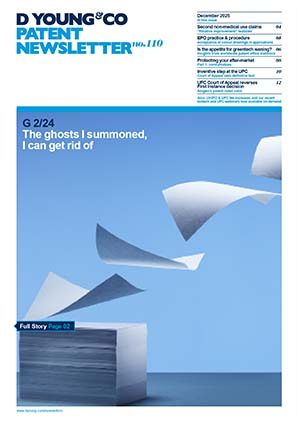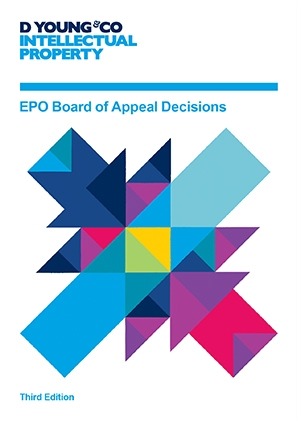Priority right - prove it or lose it
In a recent appeal decision (T 407/15), an application was refused as obvious after the applicant failed to prove it had the right to claim priority.
The University of Western Ontario appealed against the EPO’s decision to refuse its application, EP2252901A. The application claimed priority from two US provisional applications, filed by applicant-inventors who were not applicants of the subsequent PCT application.
During the appeal proceedings, the Board of Appeal identified an article published by the inventors between the priority dates and the filing date. The article was considered to be particularly relevant to the claimed subject matter. As a result, the validity of the priority claims became pertinent to the application’s patentability.
Article 87(1) EPC states that “Any person who has duly filed […] an application for a patent, […] or his successor in title, shall enjoy, for the purpose of filing a European patent application in respect of the same invention, a right of priority”.
According to established EPO practice, all applicants of a priority application, or their successors in title, must be applicants of the subsequent application for a valid claim to priority.
CRISPR patent appeal decision: EPO maintains “all applicants” approach to priority
The EPO’s “all applicants” approach to priority was recently confirmed in the widely reported appeal decision T 844/18 (see our summary article: “CRISPR patent appeal decision: EPO maintains “all applicants” approach to priority”, 21 December 2020: https://dycip.com/all-applicants-priority).
Read moreIn addition, any transfer of the right to claim priority must have occurred in advance of the filing date of the subsequent application. Although other jurisdictions allow retroactive transfers of priority rights, they are not accepted by the EPO.
In the present case, each of the US provisional applications specified that the University of Western Ontario was an assignee on their respective filing dates (and therefore in advance of the PCT filing date). However, no further detail of the assignment was included. The Board of Appeal decided that this was not sufficient evidence to establish a valid transfer of the right to claim priority from the earlier applications. In particular, the Board of Appeal reasoned: “This is a consequence of the fact that the filing of a first application gives rise to two different and independent rights, namely the right to the application in question, and the right of priority. While… the priority documents... appear to provide evidence of a transfer of the right to a patent, it is silent as to any right of priority based on said filings.”
The EPC and the Paris Convention do not specify formal requirements for a valid transfer of priority rights. However, it is established EPO practice that an applicant/proprietor bears the burden of proving succession in title when the validity of a priority claim is called into question. Therefore, the University of Western Ontario was asked to provide evidence that it was entitled to claim priority from the earlier US provisional applications. However, it failed to do so. Consequently, the Board of Appeal decided that the application was not entitled to priority, and the claims were found to be obvious in light of the intervening disclosure.
According to established EPO case law, the independence of a priority right and the right to an application does not mean that a valid transfer of a priority right inevitably requires a separate and express assignment declaration. As such, the explicit transfer of a priority right may not be essential, when other evidence is sufficient. For example, in T 205/14 and T 517/14, an expert witness attesting to the applicant’s inherent right to claim priority from an application based on its employees’ service inventions, under Israeli law (the law of the country of employment and place of business), was considered adequate evidence of a right to claim priority. In addition, in the interlocutory decision of the opposition division relating to EP2203462B, an assignment of “the entire right, title and interest in and to any and all Letters Patent which may be granted therefor” was considered to implicitly include the right to claim priority, under US law (the law of the country of the priority filing, and the law governing the legal relationship between the parties).
It is clear from T 407/15 that merely indicating the transfer of the right to a priority application may not be sufficient to prove that the priority right had also been transferred.
Comment
Given that an applicant’s/proprietor’s right to claim priority in advance of the filing date may need to be proven for patentability, where not all of the applicants of a priority application are listed on the subsequent application, we recommend that an assignment is executed that specifically mentions the transfer of the right to claim priority.


